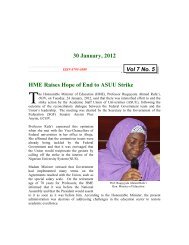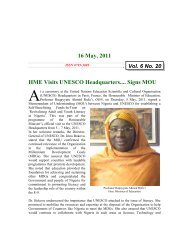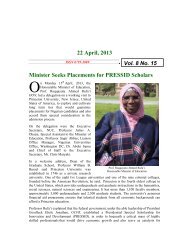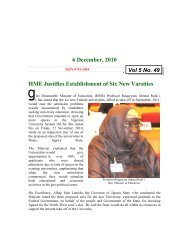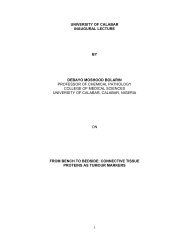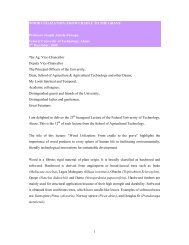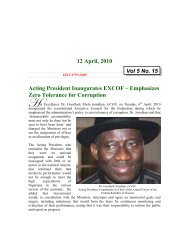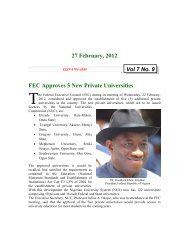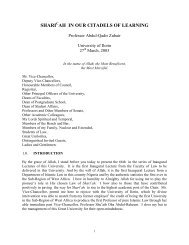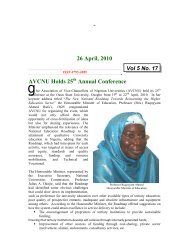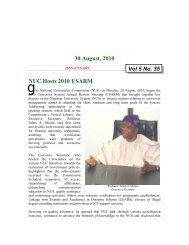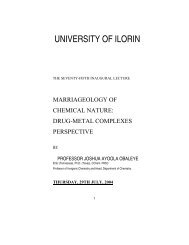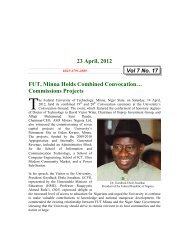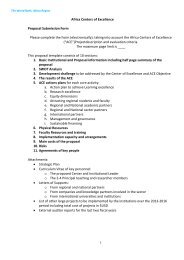From State And State Power To Man And Social - National ...
From State And State Power To Man And Social - National ...
From State And State Power To Man And Social - National ...
Create successful ePaper yourself
Turn your PDF publications into a flip-book with our unique Google optimized e-Paper software.
the School of General Studies.Unfortunately, even some political scientists have allowed themselves to be influenced so muchby a distorted version of Machiavelli’s thoughts in The Prince, that their own definition orconception of politics and political science does not deviate very much from the extremelypartial picture presented by Niccolo in that work. It bothers me, for instance, when PoliticalScientists today define politics as “all that has to do with the struggle for state power, the seizureof state power, the use of state power and the consolidation of state power”. Other populardefinitions of the subject matter that interest political scientists do not deviate much from thisdistorted version of the Machiavellian paradigm. There is for instance, David Easton’s definitionthat politics is about “authoritative allocation of values.” A very simple interpretation of this isthat politics involves the use of state power to determine who gets what, when and how insociety. It is not therefore much different, too, from the definition of politics by Harold Lasswell.Lasswell defines politics as concerned essentially with “who gets what, when and how”.All of that is grossly misleading. Politics is not just about sharing or allocation; it is, in fact,much more importantly about creating a general environment that is conducive for organizingproduction, increasing productivity, thereby maximizing human or social welfare through anenhancement of the quantum of the social product. Politics is, fundamentally, about material andhuman development; and development begins with production, and not with distribution orsharing. The supreme task of the political authority is to create and sustain a legal environmentcharacterized by liberty, tolerance, mutual respect by citizens or groups of citizens for oneanother, and general acceptance of the ‘binding- ness’ of contractual obligations. The notion ofpolitics as dealing with how to share what Nigerians call “the national cake”, through the use orabuse of state power, obviously derives partly from the misleading definition of the subjectmatter of my discipline, referred to above.The preoccupation with state monopoly of the use of force, with power as the means and end ofpolitics, and the conceptualization of politics as essentially struggle for power, are also reflectedin the definition of international relations. A brief comment on the orthodox conception ofinternational relations will make this clear.In the conventional literature, the prevailing orthodoxy is that the field of international relationshas to do with transactions and interactions among states. The sovereign entities, known asnation states, are seen as the principal actors in the international system. The field ofinternational relations is, in fact, discussed, as basically, “politics among nations: the strugglefor power and peace”.[Morgenthau, 1978] What motivates states in their interaction with oneanother is said to be raison d’etat, that is reason of state-the survival and preservation of theterritorial entity and the institutions therein.I find the orthodox conception of international relations defective in many respects. First, thisstate-centric notion of international relations causes the analyst and policy maker alike to losesight of human beings, for whom and by whom, the game of international relations is, in reality,played. <strong>State</strong> apparatuses and agencies are important instruments for the attainment of objectivesin the international system. But states, as such, are not the real actors in the international system.6



